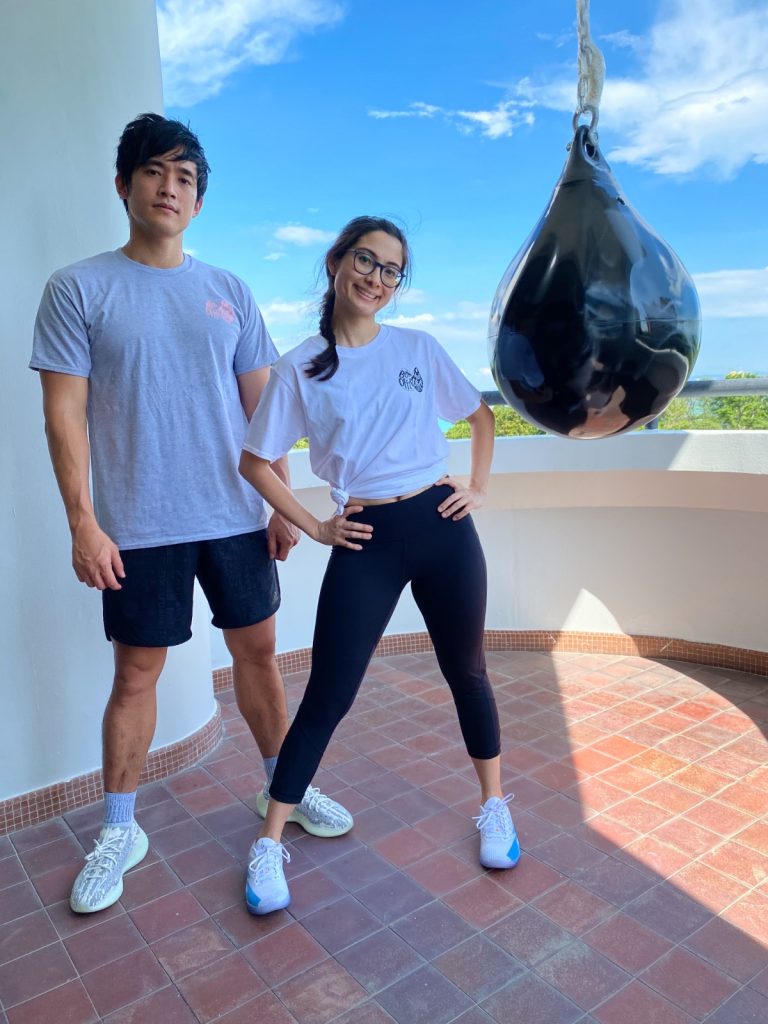Running a business is never easy, much less during Covid-19.
Like many other non-essential businesses, fitness studios in Singapore had to close since the circuit breaker measures kicked in on April 7. They can expect to reopen for business only in late June at the earliest, provided that the community infection rates in Singapore remain low and stable this month.
Many fitness studios have had to refund their members or extend the validity of their class packages. With no operating income, sustaining the business can be a real challenge for studio owners who still want to keep their staff employed and pay their landlords on time.
Monetising Virtual Classes
To generate some cash flow, BoOm Singapore has started monetising its live Zoom workouts and pre-recorded video classes.
Co-founder Victoria Martin-Tay says her studio’s online classes were initially rolled out for free “as a way to give back to the community”. But after the prolonged closure, they decided to start charging $10 per class or $30 per week for 14 classes.
The small fees do not cover much of her studio’s fixed expenses. In fact, she says her studio is now earning just about 10% of it used to be able to generate from face-to-face classes.

Photo Credit: Victoria Martin-Tay
Ms Martin-Tay looks forward to a return to normalcy, but not just for revenue sake. She wants to run face-to-face classes again, which to her are still more effective and engaging.
“We try to deliver as much as we can through the screen but it’s such a different experience,” she adds.
A Blessing In Disguise
While many studio owners share similar concerns about their bottom line, some are thankful that Covid-19 has pushed them to move online faster.
Mr Reagan Kang, for example, says the circuit breaker has been a “blessing in disguise” for his studio Haus Athletics. The 31-year-old has always wanted to “move the studio into the digital space”, and he’s able to get buy-in this time.
WeBarre’s co-founder Linda Tang also shares the same sentiment. “Virtual classes have always been something we’ve wanted to explore so we launched them really quickly,” says the 34-year-old.

Photo Credit: Linda Tang
Ms Tang says she’s heartened that the support from her existing customers has “rolled over to the virtual workouts”.
Some of her former customers, typically mothers of young children who don’t have the luxury of time to commute to her studios in the central business district, have also returned to join her online classes, which cost $15 per session.
“[Old customers] have come back to us and they’re so happy to get back to it,” says Ms Tang. She adds that many have also urged her to continue offering online classes even after the studios reopen.
Two-way support
Unlike many industry peers, Box Office Fitness has not charged for the virtual workouts posted on its public Instagram page since April 7.
“During a time like this, we just don’t want to charge [for virtual workouts] because some people are really going through it quite hard financially. We wanted to keep spirits up,” says Ms Nerissa Assudani, 30, the co-founder of Box Office Fitness.
To date, many of the studio’s videos have garnered thousands of views, with one of them scoring close to 10,000 views.

Photo Credit: Nerissa Assudani
While the videos are free, Ms Assudani says some of her customers have helped the studio by buying more merchandise and paying for classes in advance.
A Little Goes A Long Way
Many fitness studio owners say they aren’t likely to be able to recover their lost revenue quickly even when they’re allowed to resume classes.
“Even when we do open, there will still be a ton of restrictions like running classes at reduced capacities, which will still limit our income,” says Ms Martin-Tay of BoOm Singapore.
Ms Tang from WeBarre adds: “As sad as it is, some businesses will have to wind down after this time.”
She hopes customers who want their favourite local businesses to stay afloat can help in their own ways. “If communities rally behind a brand that they like, it will really go a long way.”
